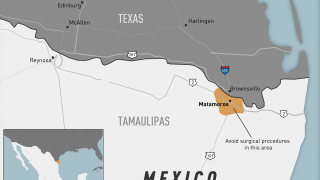Meningococcal Disease is Disappearing

Meningococcal disease in the United States may be ending. This sometimes fatal disease has rapidly declined over the past decade, which is great news.
After the MenACWY vaccine introduction, the incidence of meningococcal disease decreased 70%.
And vaccination programs are taking the credit.
Researchers from the Centers for Disease Control and Prevention (CDC) looked at data for the MenACWY meningococcal conjugate vaccine used in people aged 11 to 18 years, over the past 20 years.
Of the 7,924 cases of meningococcal disease were reported to the CDC, 15 percent of these cases proved fatal.
The CDC authors concluded, "Declines in meningococcal disease incidence in the United States have been observed among all age groups and predominant serogroups (B, C, and Y).”
“Reductions in the incidence of meningococcal disease due to serogroups A, C, W, and Y among adolescents suggest an impact of the MenACWY vaccine program in this age group."
But, even if you received meningococcal vaccines, you could still get meningococcal disease.
Meningococcal disease is a serious illness caused by a type of bacteria called Neisseria meningitidis. There are at least 12 types of N. meningitidis, called “serogroups.” Serogroups A, B, C, W, and Y cause most meningococcal disease.
Meningococcal disease can spread from person to person through close contact (coughing or kissing) or lengthy contact, especially among people living in the same household, according to the CDC.
The CDC recommends vaccination with a meningococcal conjugate vaccine for all preteens and teens at 11 to 12 years old, with a booster dose at 16 years old. Teens and young adults (16 through 23 year olds) also may be vaccinated with a serogroup B meningococcal vaccine.
Below is more information about which meningococcal vaccines are recommended for people.
Preteens and Teens: There are two types of meningococcal vaccines for preteens and teens:
- Meningococcal conjugate vaccines (Menactra® or Menveo®)
- Serogroup B meningococcal vaccines (Bexsero® or Trumenba®)
Babies and Children: The CDC recommends a meningococcal conjugate vaccine (Menactra® or Menveo®) for children who are between 2 months and 10 years old
Adults: Adults should get a meningococcal conjugate vaccine (Menactra® or Menveo®) if they:
- Have a rare type of disorder (complement component deficiency)
- Are taking a medicine called Soliris®
- Have a damaged spleen or their spleen has been removed
- Have HIV
- Are a microbiologist who is routinely exposed to Neisseria meningitidis
- Are traveling to or residing in countries in which the disease is common
- Are part of a population identified to be at increased risk because of a serogroup A, C, W, or Y meningococcal disease outbreak
- Are not up to date with this vaccine and are a first-year college student living in a residence hall
- Are a military recruit
Adults should get a serogroup B meningococcal vaccine (Bexsero® or Trumenba®) if they:
- Have a rare type of disorder (complement component deficiency)
- Are taking a medicine called Soliris®
- Have a damaged spleen or their spleen has been removed
- Are a microbiologist who is routinely exposed to Neisseria meningitidis
- Are part of a population identified to be at increased risk because of a serogroup B meningococcal disease outbreak.
The risk for meningococcal disease remains high in patients using the blood disorder drug Soliris, even after they have received a meningococcal vaccine, according to the CDC.
But, the CDC says patients should still receive meningococcal vaccines before they begin treatment with Soliris.
The CDC is asking all state health departments to fill out a report form for all meningococcal disease cases in patients receiving Soliris (eculizumab). That form can be found here.
The agency asks that forms be sent by secure email to [email protected] or secure fax at 404-471-8372.
The CDC Vaccine Price Lists for general information can be found at this link.
This research was published by Oxford University Press for the Infectious Diseases Society of America 2017. This work is written by US Government employees.
Our Trust Standards: Medical Advisory Committee

























